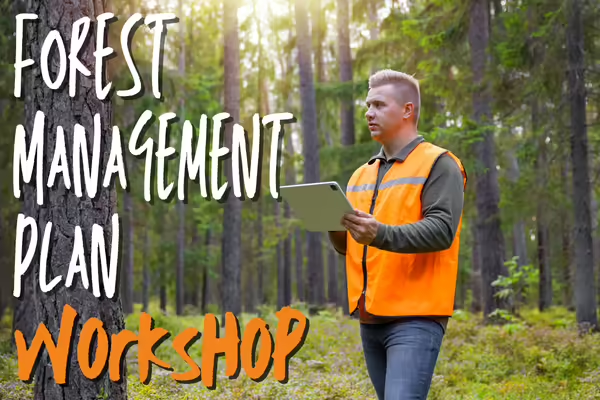
Join Chris Evans, University of Illinois Extension Forestry Specialist for a Forest Management Plan Workshop on Saturday, October 19 from 10 a.m. to 3 p.m. at the Elizabeth Community Building, HWY 20 West, Elizabeth, IL. There will be a $40 fee to attend this workshop. Pre-registration is required by October 16 to attend the workshop and lunch is included in your registration. To register or for more information please visit us online or call the Extension Office at 815-858-2273.
Forest management is a way to get the most out of your forest, whether your goals are increasing timber value, wildlife habitat, beauty and recreation, or just having a healthy forest. Effective forest management starts with a plan!
This workshop will cover how managers and landowners can set goals for their forests, what programs are available to assist in forest management planning, understanding a forest management plan and its recommended practices, and a discussion on the trends and issues facing forests in northwestern Illinois. The day will end with a tour of a managed forest.
This workshop will be useful for any forest manager whether you are just thinking about starting to manage your forest or you already have a plan in place.
If you need a reasonable accommodation to attend this program, please call the Extension Office at 815-858-2273. Early requests are strongly encouraged to allow sufficient time to meet your needs.
University of Illinois Extension develops educational programs, extends knowledge, and builds partnerships to support people, communities, and their environments as part of the state's land-grant institution. Extension serves as the leading public outreach effort for University of Illinois Urbana-Champaign and the College of Agricultural, Consumer and Environmental Sciences in all 102 Illinois counties through a network of 27 multi-county units and over 700 staff statewide. Extension’s mission is responsive to eight strategic priorities — community, economy, environment, food and agriculture, health, partnerships, technology and discovery, and workforce excellence — that are served through six program areas — 4-H youth development, agriculture and agribusiness, community and economic development, family and consumer science, integrated health disparities, and natural resources, environment, and energy.